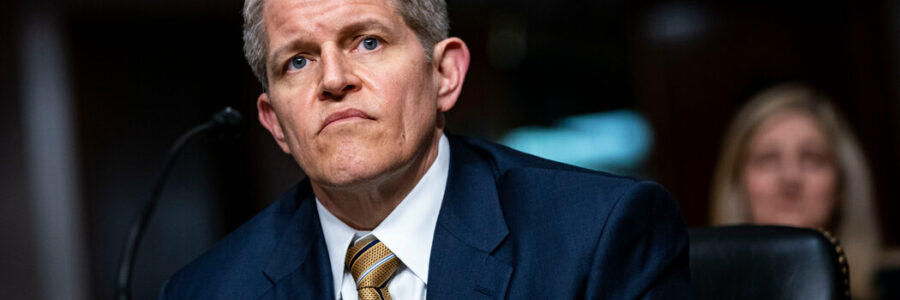
‘This Was a Failure’: Biden’s A.T.F. Pick Says White House Left Him Open to Attack
David Chipman’s defeat was a loss for gun control groups, which saw the appointment of a strong director as the most important move the president could make on guns.
By Glenn Thrush
David Chipman’s confirmation odyssey began with a short congratulatory buzz from Attorney General Merrick B. Garland in April and ended, he said, with a long, rueful call from the presidential adviser Steve Ricchetti admitting the White House had fallen “short.”
Mr. Chipman, a brash gun control activist whose nomination to head the Bureau of Alcohol, Tobacco, Firearms and Explosives imploded this month, said he had no other contact with the White House, which often left him feeling alone, on “an island,” when pro-gun groups attacked him.
Instead, the West Wing strategy focused on selling Mr. Chipman to Senator Joe Manchin III of West Virginia, the centrist Democrat and perpetual kingmaker in an evenly divided Senate, only to lose the support of Senator Angus King, an independent from Maine, which left Democrats at least one vote short of the 50 needed for confirmation.
“Either this was impossible to win, or the strategy failed,” Mr. Chipman told The New York Times in his first public comments since President Biden withdrew the nomination, conceding he could not get the votes. “This was a failure.”
Mr. Chipman’s defeat represented a major victory for the gun lobby and a huge loss for gun control groups, who saw appointment of a strong director for the bureau as the most important move Mr. Biden could make as Republicans block legislative action. It was a reminder of Mr. Biden’s struggles, eight months into his presidency, to fulfill big promises he has made to progressives on voting rights, immigration and guns.
In a far-ranging interview, Mr. Chipman, who served as an agent at the bureau for 25 years before becoming one of the country’s most prominent gun control activists, praised the White House for what he jokingly called the “gangster move” of nominating someone like him in the first place.
But he questioned the administration’s willingness to execute a coordinated strategy to get him through the Senate and expressed concern about its next moves. He said he found it “unusual” that he spoke to no one at the White House from the moment he was nominated.
Source: Read Full Article
